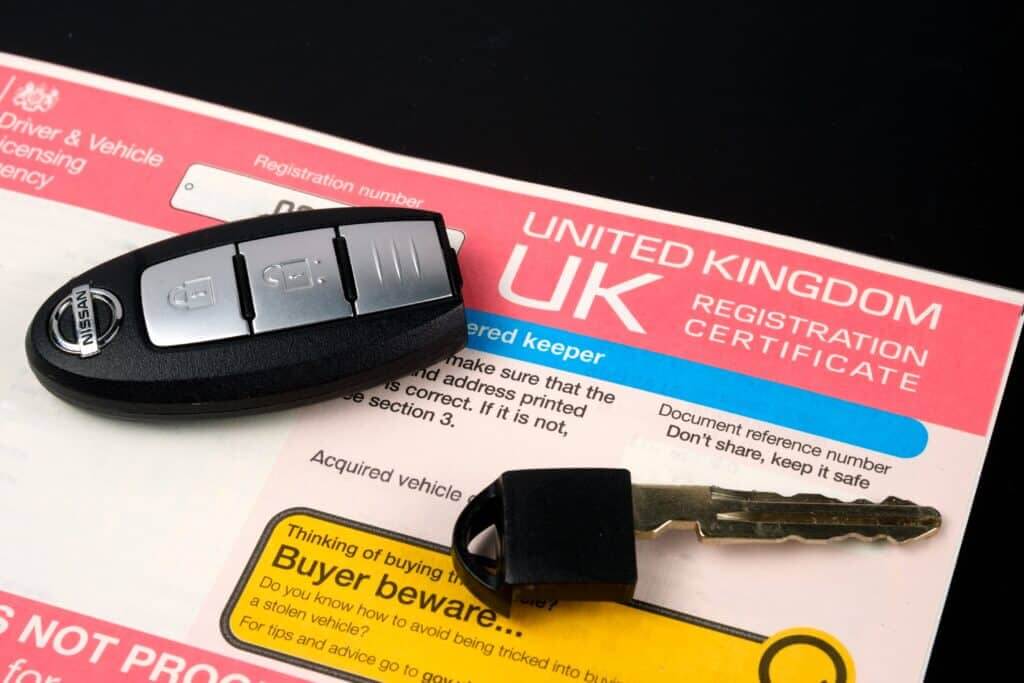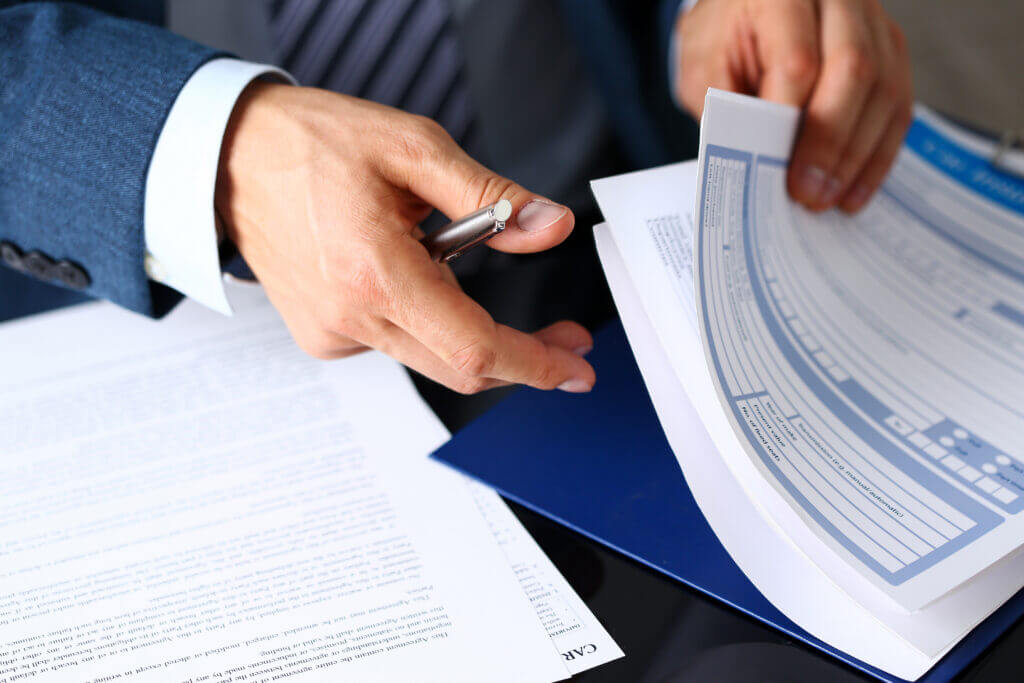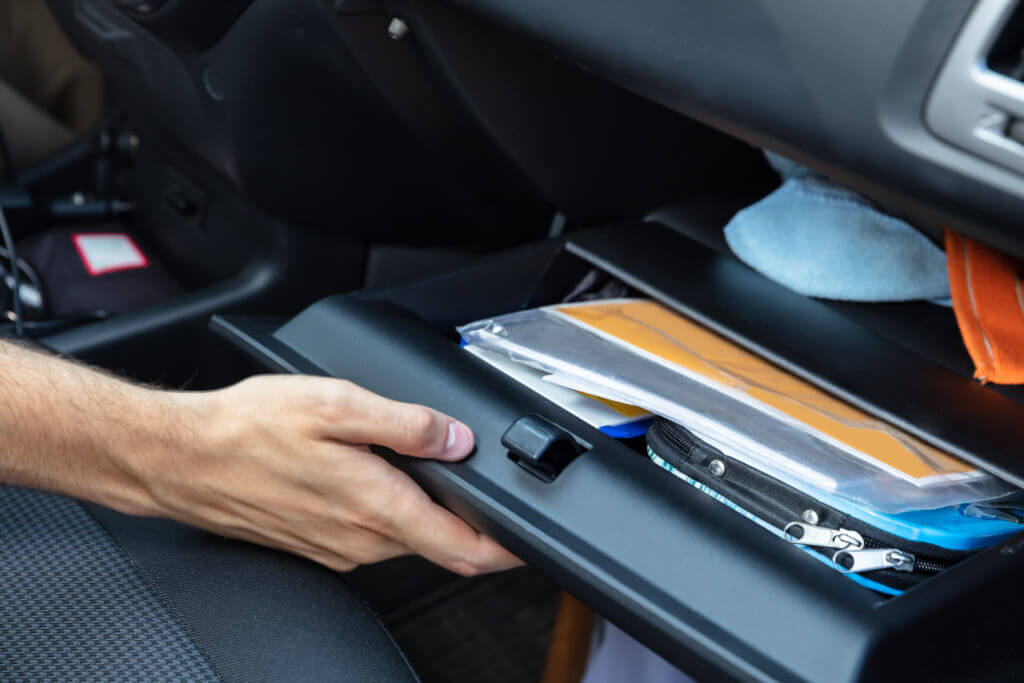At a glance
- If you’re buying a used car, it’s a wise idea to do a car registration check. This will help you uncover the cars history!
- Not carrying out the car right car check can leave you vulnerable. You might be driving a car that’s not fit for the road
- Follow our step-by-step guide on how to carry out a car registration check
- Discover the other car checks you can do, for your peace of mind
Doing a car registration check is one of the most important things you can do when you’re buying a used car. A car reg check means you can be confident you’re actually getting what you’re paying for, and you won’t miss any red flags.
A reg checker covers the history of your potential new vehicle, including its service history, how many owners it has had, and any outstanding finance or insurance write-offs.
Unfortunately, some used cars have a chequered history, and not all sellers are trustworthy. It can also be fairly difficult (and sometimes impossible) to get money back on a used car that turns out to be dodgy. So, by doing your own background checks, you’re taking steps towards avoiding a ‘nightmare’ purchase and driving away happy.
In this blog, we’ll help you to understand what a car reg check is, how to check the registration of a vehicle, and much more.
Table of contents
- What is a car reg check
- Why should you check your car’s history?
- What is included in a free car history check?
- What is included in a private history/data check?
- How to do a car registration check?
- What is an HPI check?
- Check if the car has been recalled because of safety issues
- Check that the logbook isn’t for a stolen vehicle
- What physical documents do you need for a car registration check?
- Other car checks
What is a car reg check?
First things first, you might be wondering what a car reg check actually is. Put simply, a car reg check is the process of researching a car’s history to find out about its previous owners, it’s servicing, any outstanding finance, write-offs, tax, and other important information about the vehicle. It’s also known as a car registration check or a vehicle history check.
All the information associated with any individual vehicle should be stored in databases belonging to various government and private agencies. When you perform a car reg check, you’re essentially asking them to send you information to verify the car is OK.
A car reg check will show all the information you need to make sure the vehicle is what the seller says it is, including:
- Current status
- Car tax history
- Year of manufacture
- Engine size
- Fuel type
- And much more
There are several car registration checks that are completely free to use. But it’s sometimes worth spending a small amount of money on a paid car reg check which will give you more information about the vehicle you plan to buy.

Why should you check your car’s history?
Doing a car reg check is basically due diligence – it’s about making sure you won’t have any nasty surprises after spending your money. Especially when buying from a private seller.
A car reg check is a bit like getting a surveyor to inspect a property when you’re buying a house. By analogy, a house surveyor finds out if there’s any subsidence, if there’s rising damp, or if there are any structural problems. In the same way, a car registration check finds out if there’s any unpaid tax, if the car’s ever been written off, or if it’s been stolen (and much more).
If you don’t do a car reg check, you could end up with a car that has problems. This could mean:
- You might unwittingly be driving a stolen car – and could get pulled over by the police
- The car might have failed its MOT – so it’s not fit to drive
- You might end up having to pay vehicle tax that a previous owner should have paid
- The car could be unsafe to drive (if, for instance, it has been recalled by the manufacturer)
- It can be very difficult to get your money back if you buy a dodgy used car – especially from private sellers – due to the ‘buyer beware’ principle (basically, if you buy a used car from a private individual, you’re responsible for checking it out and can’t usually take it back if there’s a problem)
What is included in a free car history check?
There are several free car registration checks which cover all the basics (you can find them online using a search engine). Doing a car check history for free will reveal things like:
- The car’s make, model and original colour
- Tax MOT expiry
- Vehicle emissions
- Mileage history
- Engine information
- It might include a free check of road tax
This information might be enough if you know the car is fairly new or you’re buying from a reputable seller (such as an established car dealership). But it’s often wise to seek out more information by using a paid-for service. This is especially true when buying older cars or from smaller dealerships and private sellers.
What is included in a private history/data check?
If you want to do a more detailed search into a vehicle’s history, you can pay various private companies to check the tax and insurance of a car (again, search for them online). These firms can check things like:
- Car logbook history
- Car tax history
- A car’s service history
- A car’s mileage history
- Tax and MOT check history
- MOT tax insurance check
- And much more besides
You can expect to pay between £10 and £20 for this kind of service.
How to do a car registration check?
Doing a car reg check is quite easy. To run some basic checks on government sites like the DVLA and the DVSA you need little more than the car’s number plate.
The DVLA is great for making a tax and MOT check history, while the DVSA will give you a comprehensive MOT history of any vehicle.
For more in-depth vehicle checks, there are plenty of companies that offer them. The HPI check, which we’ll discuss in a minute, is arguably the best car history check and is the one that we work with at Motors.
DVLA history check
The most basic car registration check is the one you can do using the DVLA reg checker (access it via the DVLA website). It’s free and easy to use, and lets you view:
- The tax status of the car you want to buy
- Its MOT status
- Basic information about the car such as: registration date, engine size, fuel type and colour
All these things will be helpful when you want to validate a car’s past. Just remember to have the car’s registration plates (AKA the number plate) handy.
MOT history check
The DVSA website is another useful government tool. It gives you a free full MOT history of any vehicle. All you’ll need is the car’s registration plates and the 11-digit number from the vehicle’s logbook. Ask the seller to provide you with this number.
Having the MOT history of a car gives you a very accurate indication as to whether the car has been looked after. It lists any MOT failures and details any advisories the car has had. If these issues haven’t been sorted, ask the seller to find out why. At the very least they should offer a discount to get the issues fixed.
You can also use the MOT history check to verify the car’s mileage and to make sure it hasn’t been ‘clocked’ with a lower mileage. Again, this government tool is free and easy to use.

What is an HPI check?
An HPI check is the industry standard for vehicle history checks and it stands for ‘Hire Purchase Investigation’. This is the name of the company that does the car reg check, and was one of the first to provide this service.
At Motors, we work with HPI to check the car you want to buy, and we reckon it’s the best car history check going.
You can do an in-depth full check from HPI for around £20. It’s good value for money and will give you peace of mind that the car you are buying has no hidden secrets.
The HPI reg checker provides a lot of really valuable information, including:
- If the car has been stolen
- If the car has been scrapped
- If the car has been written off by an insurer
- If the car has been imported or exported
- If the car has its original number plate or it has been changed
- The car’s original colour
- The car’s mileage
- The car’s previous owners
- VIN/Chassis numbers
- MoT status
- Road tax / Fuel costs
For more information on how we work with HPI, have a look at our car history check guide.
Check if the car has been recalled because of safety issues
Checking if a car has been recalled at some point in its life is part of an MOT History check. Again, this is easy and free to check on the government site.
Check if the logbook is for a stolen vehicle
When you’re doing a car registration check with the DVLA it will show you the V5C vehicle registration certificate and its serial number. When you go to see the car, check that the log book has a ‘DVL’ watermark, and that the serial number and details match those the government site has given you.
If it doesn’t and the serial number is between BG8229501 to BG9999030, or BI2305501 to BI2800000, then the vehicle may be stolen, and you should call the police as soon as it’s safe to do so.
You can check the vehicle registration number on the gov.uk website.
What physical documents do you need to verify in a car registration check?
There are two physical documents you’ll need to do any car registration check:
- A full and up-to-date service history
- The V5C registration document
The V5C document is a slip of paper that only the registered owner or dealer should have. If you can’t see it and it is nowhere to be found, be wary of the vehicle and its owner since it could mean that the car is stolen.
When you meet the seller and do a test drive, ask to see these documents. It’s perfectly fine to take photos of pages in all these documents so you can refer to them later. For more advice, read our article on doing a test drive.

Other car checks
Besides car registration checks, there are several other kinds of inspection you should do when buying a used car.
Physical car check
When you come to visit the car in person, it’s sensible to check a few more things before you buy it.
- VIN Number (Vehicle Identification Number): you need to make sure that the 17-digit number stamped on the chassis, at the bottom of the windscreen and on stickers in the door openings matches the one you got on your HPI vehicle check. If these don’t match, don’t buy the car.
- Damage: it may sound obvious but checking a car for damage is something that should be done. Check for dents, scuffs and scratches.
- Mileage: does it match the condition of the vehicle? Is the car very old but has low miles on the clock? Make sure you’re getting what you’re paying for, and no one has tampered with the mileage (which you can get from the HPI check).
- Body panels: do they match? Are they the same colour? Has the car been repainted?
- Mechanical checks: it never hurts to bring along someone who knows about car mechanics to check over a car before purchasing it.
Nowadays, more and more people are buying their cars online. Check out our must-read guide to buying a car online to make sure you do all the necessary checks.
Car insurance checks
This isn’t so much about checking whether the car owner has car insurance (they should, by the way). Rather, it’s worth verifying if your existing car insurance covers you on other cars. If you’re planning on test-driving your potential new vehicle, then you’ll need insurance. If you don’t have it, you can always take out a short-term policy so that you are covered.
The importance of doing a car registration check
Although doing a car reg check might take a little effort, it’s definitely worth doing. For just a few minutes spent online (and around £20 with a comprehensive reg checker tool) you could avoid all the headaches that come with buying a dodgy used car. And that means you can enjoy your new vehicle with nothing to worry about.


